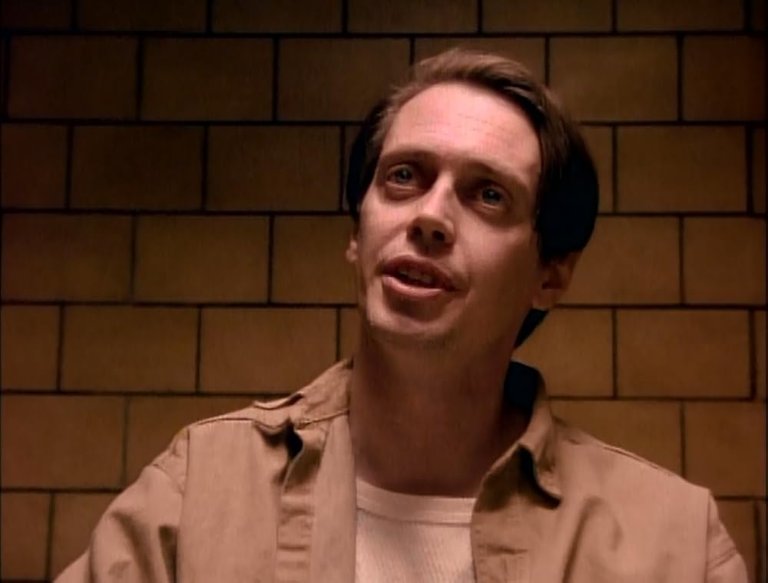Television Review: End Game (Homicide: Life on the Street, S3X14, 1995)

End Game (S03E14)
Airdate: 10 February 1995
Written by: Rogers Turrentine
Directed by: Lee Bonner
Running Time: 47 minutes
In the late 1990s, right-wing militia extremists became a popular trope for Hollywood screenwriters, reflecting a growing cultural preoccupation with domestic terrorism. This trend was largely catalysed by the Oklahoma City bombing in 1995, a devastating event that marked the deadliest terrorist attack on American soil at the time, only to be tragically surpassed by the events of 9/11 a few years later. However, the archetype of the gun-obsessed, far-right fanatic as a despicable villain was already firmly entrenched in the cultural imagination. This figure was effectively employed by the authors of End Game, a Season 3 episode of Homicide: Life on the Street, which aired just two months before the Oklahoma City atrocity. The episode, part of a three-episode arc, delves into the aftermath of a near-fatal shooting of three detectives, exploring themes of justice, vengeance, and moral ambiguity.
End Game serves as the concluding chapter of a gripping narrative arc that begins with the near-fatal shooting of three Homicide Unit detectives. The detectives, while attempting to serve a routine arrest warrant on a paedophile named Glenn Holton, inadvertently knocked on the wrong apartment door due to a clerical error. The shooter, as it turns out, is not Holton but Gordon Pratt, a low-paid worker with a criminal history of assault and illegal possession of automatic firearms. Pratt, played by Steve Buscemi, is revealed to be a gun-obsessed individual who attempts to mask his intellectual inadequacies by surrounding himself with philosophy books, deep-seated racism and disdain for the government. During the interrogation, Detective Pembleton exploits Pratt’s racist beliefs in an attempt to break him down, exposing him as a near-illiterate high school dropout whose bigotry serves as a shield for his own insecurities. Despite Pembleton’s efforts, Pratt refuses to confess, and a lack of physical evidence forces the Homicide Unit to release him. The episode takes a darker turn when Pratt is later found shot to death in his apartment, with details suggesting that someone within the Baltimore Police may have taken matters into their own hands to avenge their wounded colleagues.
One of the standout features of End Game is its exceptional writing and acting. Steve Buscemi, a character actor whose career was flourishing in the 1990s, delivers a riveting performance as Gordon Pratt. His portrayal of a despicable, unrepentant, and hypocritical racist is both compelling and deeply unsettling. Among the regular cast, Andre Braugher shines once again as Detective Pembleton, the unit’s most skilled interrogator. Braugher’s ability to convey Pembleton’s intellectual prowess and emotional complexity adds depth to the episode.
The script, penned by Rogers Turrentine, deserves praise for its refusal to conform to conventional storytelling tropes. Unlike many crime dramas, End Game does not offer a neat resolution. Pratt’s guilt or innocence is never definitively established, and the episode concludes on a dark and unsettling note. The shooting of the detectives profoundly affects the entire police force, particularly the Homicide Unit, and the suggestion that one of their own may have taken justice into their own hands is both plausible and deeply troubling. This moral ambiguity is underscored in a pivotal scene where Pembleton, typically the most composed and level-headed of the detectives, loses his temper. His frustration at being unable to break Pratt, a man he views as morally and intellectually inferior, highlights the emotional toll of the case and raises questions about the limits of justice and the potential for corruption within the system.
While End Game is a strong episode, it is not without its flaws. The use of quasi-documentary footage, featuring a television crew interviewing members of the Homicide Unit about the case, feels overly stylised and reminiscent of MTV aesthetics. This stylistic choice, while innovative, detracts from the episode’s gritty realism. Additionally, the parallel storyline focusing on the recovery of Felton, Howard, and Bolander from their injuries occasionally feels like a distraction. That said, the psychological and physical toll of their ordeal is portrayed with commendable realism.
Turrentine’s script also includes a nod to cinephiles, with references to Jim Thompson’s novel The Getaway and comparisons between its 1972 and 1994 film adaptations. The latter, starring Alec Baldwin (brother of Homicide’s Daniel Baldwin), is dismissed as inferior, a sentiment that aligns with the general consensus among critics and fans.
End Game is a well-crafted and thought-provoking episode of Homicide: Life on the Street that explores complex themes of justice, vengeance, and moral ambiguity. While it is not without its imperfections, the episode’s strong writing, exceptional performances, and refusal to provide easy answers make it a standout entry in the series.
RATING: 8/10 (+++)
Blog in Croatian https://draxblog.com
Blog in English https://draxreview.wordpress.com/
InLeo blog https://inleo.io/@drax.leo
Hiveonboard: https://hiveonboard.com?ref=drax
Rising Star game: https://www.risingstargame.com?referrer=drax
1Inch: https://1inch.exchange/#/r/0x83823d8CCB74F828148258BB4457642124b1328e
BTC donations: 1EWxiMiP6iiG9rger3NuUSd6HByaxQWafG
ETH donations: 0xB305F144323b99e6f8b1d66f5D7DE78B498C32A7
BCH donations: qpvxw0jax79lhmvlgcldkzpqanf03r9cjv8y6gtmk9
Congratulations @drax! You have completed the following achievement on the Hive blockchain And have been rewarded with New badge(s)
You can view your badges on your board and compare yourself to others in the Ranking
If you no longer want to receive notifications, reply to this comment with the word
STOP